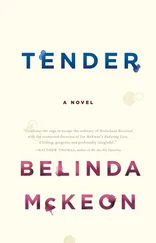Mark was born three years after Nuala. His stare as Tom took him from Maura for the first time was steady and clear; Tom had carried him to the window and pointed down to the car park, down to where he had left the car; it had been the blue Escort, that time, with the dog-bone grille. The child had a red face like a drinker and a head of dark spikes. A broken vein above his left eye would, Tom thought, take years to fade away. From her bed, Maura called him back from the window. She was worried about draughts.
Almost from the day he could walk, the boy wanted to be outside with Tom. He was a strong child, sturdy, and he was infatuated with the things of the farm. Hearing the splutter of a tractor engine, he would rush to the window, demanding to see it, offended if it could not be seen. To be allowed in the cab of his father’s tractor, to grip the cold metal of the steering-wheel, to press the black plastic dome of the horn; these things sent him into a chattering frenzy, or else into a spell of speechless delight. With the animals he was fearless. He would walk up to a cow and swipe at its legs with a stick he had pulled from the ditch, or a length of piping he had picked up in the yard. He would grab at its udders, imitating what he had seen Tom do in the milking shed. The cows were content in their routine, and used to handling; they tolerated the boy’s noisy proximity, his prodding and pulling, his lunges at their throats, their nostrils, their tails. But it was not safe. It could not have been more dangerous. One kick from a cow lunging in to protect her calf could leave the child useless for the rest of his life.
Those first years, when he was small, there was pleasure just in watching him among the animals, the fields, the sheds that, before him, had only ever meant work or worry. To see this boy stride around the farm, even if he was hardly taller than the sheepdog, even if he was in short trousers and red wellingtons, even if he had a head of curls like a girl; even for all this, the sight of him there was like a prayer lodged in the mind and answered with every thought. Tom took Mark everywhere — to the mart and its chaos, to the creamery and its dirty white puddles, to the slaughterhouse beside the army barracks, where the workers crossed the yard in butchers’ coats stained crimson, sucking on cigarettes and talking the ordinary talk of the day. He took him up to visit Tommy Burke, who farmed at the other end of the lane and who Tom had known since he was a boy himself, and soon Mark was walking over the lane to Tommy alone, staying for hours around the yard and the sheds, just as Tom had done at his age. Mark plunged into this world and asked few questions, showed little sign of being cautious or uncertain or afraid. It was as he had been that first day in the hospital, the solid way of looking, the air of already knowing it all. Of being born to it, and for it. Tom did not say this to Maura, or to anyone, because it was not the sort of thing that could be said aloud, that phrase, that set of words, but once it had rung in his mind, it continued to sound.
School was what changed Mark. It took a few years, but the change came, and then it worsened with each new year. The friends, the football matches, the long evenings at the kitchen table with his books and his pencils and with Maura close by; he saw it as a chore to have to go out on the farm. Then he was in the secondary school in Longford and then he was in Trinity, gone altogether except for the odd weekend.
The farm would be his, of course; Tom had long since sorted all of that out. He would have loved to know for sure that it would be farmed, but he could not insist on that, and he did not know how to ask. He knew there was the matter of Mark’s college career, something he did not fully understand but had to pretend to understand unless he wanted to get the sharp end of Maura’s tongue; she was always telling him that he was too selfish when it came to Mark and to what Mark was entitled to do with his life. He knew by now to keep quiet on it, and not to ask too many questions, and not to point out — and he was only saying — that Mark seemed to have only a few hours a week when he really needed to be up in Dublin, and that he had his whole, long summers free, and long breaks at Christmas and Easter as well, and it was just the case that there was a farm down here with his name on it, a farm that was coming to him, and Tom couldn’t see how that farm could not be compatible with those few hours a week, those few months a year, that Mark had to spend up in Dublin. He could be saving himself a fortune on rent, for a start, and if he would only do the training course for young farmers that they ran in the Teagasc place in the town, he would be in line for all sorts of grants and subsidies. There was a desk up in his room, and he could work on his studies every evening if he wanted to — he could work on them any time he liked; Tom would not disturb him. And since he was so interested in the one from Edgeworthstown who had written books, it seemed only natural that he would need to be around here anyway, instead of in Dublin. Mark kept talking about the library, how he needed to be near to it and working in it and able to go into it any time he liked. But he was entitled to borrow some huge number of books from the library, hundreds of them; he had told Tom that a couple of years ago, when they were talking about Trinity one time. And there were a couple of trains a day up to Dublin now, and back again, and of course he could buy himself a car. Tom would buy him a car. He was always offering. But Mark always had some way of putting him off. He didn’t need it, he kept saying; he preferred the handiness of the train, preferred to be able to sit on the train and catch up on work.
Work. Tom knew what work was; knew what the work really worth doing was, too. Work in rain or shine, the work of keeping a good farm on the go. He knew Mark liked to read, liked to write, and Tom liked to read, the odd time, himself, but there was no way you could think of that, truly, as work. There was pleasure in it, sure, but not like there was pleasure in the work he did every day: the pleasure of seeing a field well fenced, or freshly baled under a clear blue sky — or of a whole herd of cows come safe and well after a calving season. Tom knew that, and Mark would know it, before too long. Things would sort themselves out in the years ahead. You could say no to a car, but you couldn’t, not really, say no to your own place. The thought of it gave Tom a glad feeling, a safe one. When the back door banged, he started at the sound. In all of his thinking he had almost forgotten that Mark was actually there. It was nearing evening. They needed to begin.
It was after ten when they finished work that night. Though it had not seemed dark in the meadow as they gathered the last bales, the view from inside the kitchen showed that night had come. Mark could see his reflection in the glass against the darkness; he looked hard-faced, he thought, wild-haired, his shoulders hunched. He looked like what he was, a farmer’s son, and he looked, too, like a farmer’s son who was himself becoming a farmer. He looked like one of the farmers his own age who lived nearby. John Flood, or Noel Flynn, or, he thought with a start, Frankie Lynch, boys who had grown up as he had, driving tractors before they were out of primary school, knowing every dip in the land, every drift on the wind, every eye in the herd. Now they all looked the same, no matter how much or how little money they had behind themselves and behind their farms. The same way of walking, the same way of standing, the same way of looking up slowly and assessing whatever met their eye — a woman, an engine, a sky. The eyes were always slightly hooded, the shoulders always slightly tensed, and the mouth hung heavy; the lips looked weighted, somehow. In the window’s mirror, Mark saw that young farmer staring back at him, one big hand clamped to the edge of the sink, streaked with muck and oil, and the other slamming a delicate cup down as heavily as a stake, exhaling hard to push the strain of the whole long evening away.
Читать дальше












